25 Jan2022
By Nicole Dunn
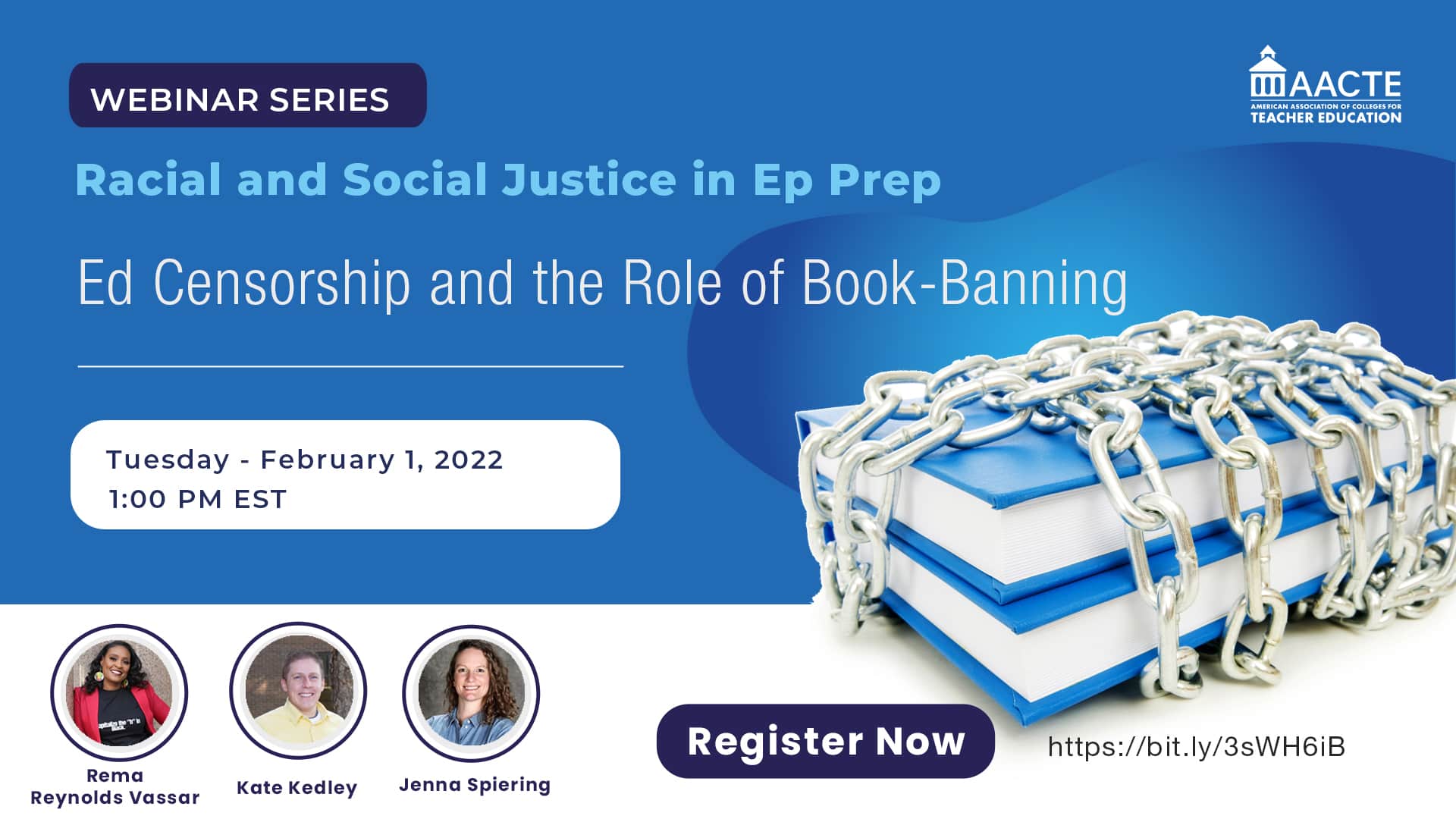 Since the historic SCOTUS ruling in 1982, Board of Education, Island Trees Union Free School District v. Pico, which ruled that school boards cannot remove books because they disagree with them, describing libraries as spaces of “voluntary inquiry,” book bans and challenges have continued. The education field is based upon the values of intellectual freedom that were upheld by this and other Supreme Court decisions; however, the executive director of the American Library Association’s Office for Intellectual Freedom recently stated in an interview, “We’re seeing an unprecedented volume of challenges.” While there is a formal “challenge” process for censoring information in libraries and curriculum, the enormous increase in political pressure has prompted some school districts to abandon their policies and begin pulling the books without undergoing this review process. As a result of not abiding by this process, which is legally reserved for challenging content that is “obscene,” books that overwhelmingly depict LGBTQ+ and BIPOC stories are removed from shelves, having been deemed “obscene” by local opinion.
Since the historic SCOTUS ruling in 1982, Board of Education, Island Trees Union Free School District v. Pico, which ruled that school boards cannot remove books because they disagree with them, describing libraries as spaces of “voluntary inquiry,” book bans and challenges have continued. The education field is based upon the values of intellectual freedom that were upheld by this and other Supreme Court decisions; however, the executive director of the American Library Association’s Office for Intellectual Freedom recently stated in an interview, “We’re seeing an unprecedented volume of challenges.” While there is a formal “challenge” process for censoring information in libraries and curriculum, the enormous increase in political pressure has prompted some school districts to abandon their policies and begin pulling the books without undergoing this review process. As a result of not abiding by this process, which is legally reserved for challenging content that is “obscene,” books that overwhelmingly depict LGBTQ+ and BIPOC stories are removed from shelves, having been deemed “obscene” by local opinion.
18 Jan2022
By Margaret Gerry
 The current and historical public-school workforce in the United States remains predominantly white, middle class, and female; however, these demographics have never accurately represented all students in American classroom settings, which continue to grow in diversity. Classrooms are a place where the presence of biases, stereotype threats, and need for more inclusive environments resulting from differences between the demographics and lived experiences of the teaching workforce and students exist. While AACTE and other education stakeholders are taking up efforts to diversify the field, it is essential to improve the ability of our current educator workforce. In the United States, our classrooms have never been more diverse with students from multiple cultures, socio-economic levels, and disabilities. Thus, the essential question remains: How can we best prepare teachers to support all students in our classroom settings?
The current and historical public-school workforce in the United States remains predominantly white, middle class, and female; however, these demographics have never accurately represented all students in American classroom settings, which continue to grow in diversity. Classrooms are a place where the presence of biases, stereotype threats, and need for more inclusive environments resulting from differences between the demographics and lived experiences of the teaching workforce and students exist. While AACTE and other education stakeholders are taking up efforts to diversify the field, it is essential to improve the ability of our current educator workforce. In the United States, our classrooms have never been more diverse with students from multiple cultures, socio-economic levels, and disabilities. Thus, the essential question remains: How can we best prepare teachers to support all students in our classroom settings?
10 Jan2022
By Rachel Walker Bowman
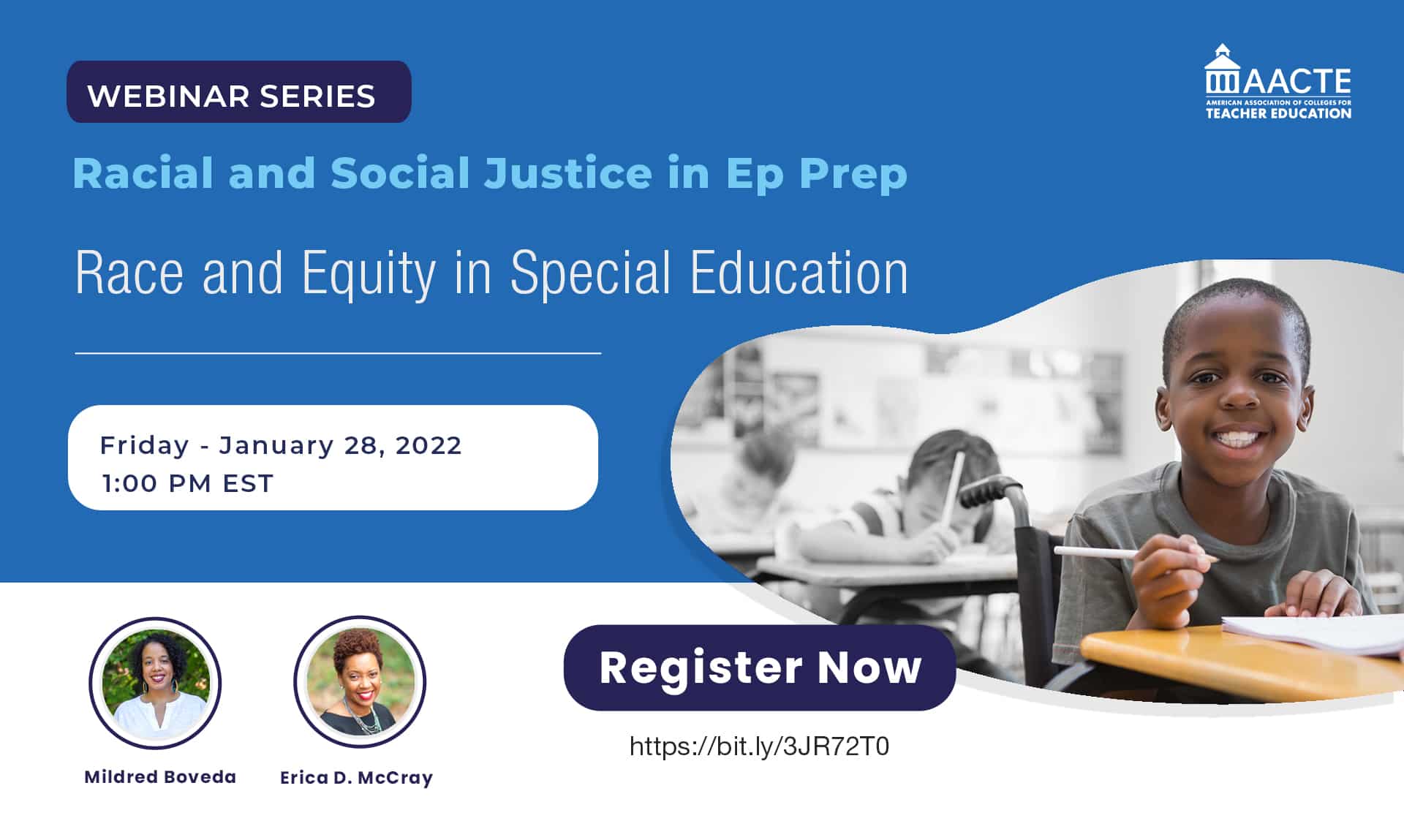
Watch the recorded session.
Conversations about race and equity are often missing from discussions of special education, particularly in teacher education. However, in a system where students of color make up half of those receiving special education services while fewer than 18% of special education teachers are people of color, race, and equity are essential topics. But are teacher educators prepared to address these issues? And how can we support teacher educators in their endeavors to do so? These are topics that panelists Erica McCray and Mildred Boveda will address in the upcoming AACTE webinar, “Race and Equity in Special Education.”
10 Jan2022
By Mary Churchill

This article originally appeared Inside Higher Education and is reprinted with permission.
In December, we were able to publish a four-episode late-fall season for our podcast “View From Venus.” We had some phenomenal women as guests: Jacqueline Rodriguez, vice president at the American Association of Colleges for Teacher Education; Shana MacDonald, faculty member at the University of Waterloo; Becky Petitt, vice chancellor at UC San Diego; and Felecia Commodore, faculty member at Old Dominion University.
We have hosted conversations with college presidents, faculty members, staff members, artists, politicians, activists and entrepreneurs—all amazing women doing great work. One goal of the podcast is to lift up, amplify and celebrate this great work and share it with a larger audience. It is also about building connections and introducing the world to these women and the differences they are making in the world.
03 Dec2021
By Rangasamy Ramasamy
This opinion article originally appeared in Diverse Issues in Higher Education and is reprinted with permission.
 The demographics of our nation’s PK-12 student body are changing. In fact, a report from the National Center for Educational Statistics (NCES, 2019 as cited in Burden, 2020) projects that by 2027 the Caucasian student population will decrease to 45%, Latinx student population will increase to 29%, and the African American student population will remain at 15%. Thus, tomorrow’s student body will be more diverse than today and that trend is expected to continue. To meet the needs of the future PK-12 student population, educator preparation programs (EPPs) must attract a greater number of diverse candidates to the teaching profession—and that requires advocating for policies that promote diversity in the classroom and address critical teacher shortages.
The demographics of our nation’s PK-12 student body are changing. In fact, a report from the National Center for Educational Statistics (NCES, 2019 as cited in Burden, 2020) projects that by 2027 the Caucasian student population will decrease to 45%, Latinx student population will increase to 29%, and the African American student population will remain at 15%. Thus, tomorrow’s student body will be more diverse than today and that trend is expected to continue. To meet the needs of the future PK-12 student population, educator preparation programs (EPPs) must attract a greater number of diverse candidates to the teaching profession—and that requires advocating for policies that promote diversity in the classroom and address critical teacher shortages.
29 Nov2021
By UTEP
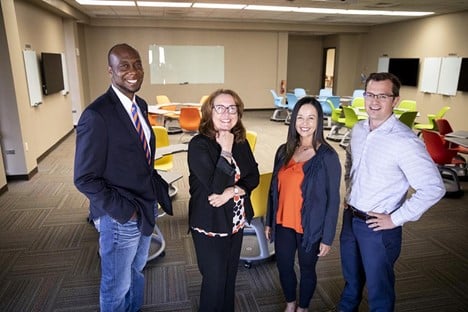
A quartet of educators from UTEP’s Department of Educational Psychology and Special Services earned a $1.1 million grant from the U.S. Department of Education to finance the education of 48 individuals who want to become K-12 counselors or special education teachers, as well as to develop technology-enhanced curricula and methods for greater collaborations. The members of Project BLESSED are, from left, Carleton Brown, Beverley Argus-Calvo, Anjanette Todd and Kristopher Yeager. Brown and Yeager are the co-principal investigators. Photo: Ivan Pierre Aguirre / UTEP Marketing and Communications
The University of Texas at El Paso is strengthening its support for school counseling and special education graduate students thanks to a five-year $1.1 million grant from The U.S. Department of Education. The award enhances the University’s ability to help these students finance their education and gives them access to enhanced technical instruction and supervision support.
24 Nov2021
By Tammy Moore
AACTE’s Consortium for Research-Based and Equitable Assessments (CREA) project recently released a framing paper titled The History, Current Use, and Impact of Entrance and Licensure Examinations Cut Scores on the Teacher-of-Color Pipeline: A Structural Racism Analysis. The paper addressed the following questions: (1) How are standardized entrance and licensure tests being used as a gateway into the profession? (2) Who determines cut scores for these tests? and (3) What is the historical significance and implications of these tests on the diversity of the profession today?
Lindenwood University represents one of fourteen lead institutions that comprise the CREA project. Tammy Moore, director of certification and field/clinical experiences at Lindenwood, reflects on the effects of entrance assessment requirements at her institution and her institution’s plans to ensure equitable access for all students who choose to pursue teacher education.
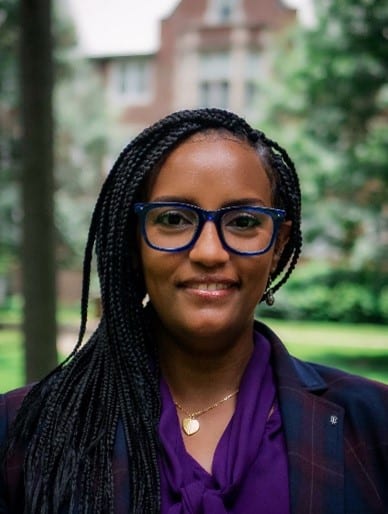 Why did Lindenwood University pursue membership in the CREA project?
Why did Lindenwood University pursue membership in the CREA project?
Lindenwood University – College of Education and Human Services (COEHS) pursued the CREA project to participate in an initiative designed to support our continual efforts to recruit and retain teacher candidates of color. In direct alignment with Lindenwood COEHS commitment to “… an open, diverse, and inclusive learning environment that nurtures the growth and development of all …” the CREA project embodies our commitment to diversifying the teaching profession.
22 Nov2021
By Jane E. West and Kaitlyn Brennan
 This blog post is written by AACTE consultant Jane West and is intended to provide updated information. The views expressed in this post do not necessarily reflect the views of AACTE.
This blog post is written by AACTE consultant Jane West and is intended to provide updated information. The views expressed in this post do not necessarily reflect the views of AACTE.
Democrats in Congress are taking a victory lap as they leave town for a weeklong Thanksgiving recess next week. With House passage of the Build Back Better Act, the Biden agenda is one step closer to enactment. But the Senate will have the final say.
House Passes Build Back Better Bill – At Last
After weeks of fraught negotiations, and multiple postponed votes, the House finally passed the Build Back Better Act (the reconciliation bill) this morning. One Democrat (Rep. Jared Golden of Maine) sided with all Republicans opposing the bill. This left the Democrats with the slim margin they needed to cross the finish line.
15 Nov2021
By Stephanie Daniel
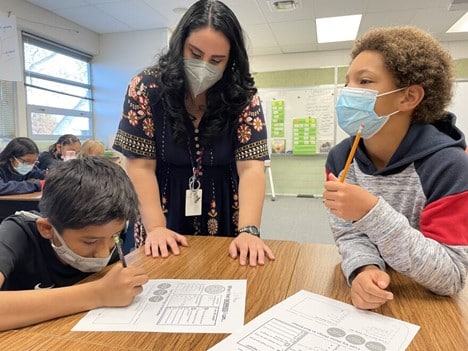 This article originally appeared on KUNC.org and is reprinted with permission.
This article originally appeared on KUNC.org and is reprinted with permission.
At East Elementary school in Littleton, a group of fifth graders is seated in a semi-circle around student teacher Stephanie Shufelt for their morning meeting.
“Yesterday we talked about resiliency. Can someone remind me of what that actually meant?” she asks.
“To keep trying,” 10-year-old Brisaida Velasco replies.
“To keep trying, right,” Shufelt says. “When tough times hit, you’re able to bounce back.”
Four days a week, time is set aside for teachers to focus on social-emotional learning and teaching students self-regulation skills. At this meeting, Shufelt discusses strategies that can help them be resilient.
15 Nov2021
By Lana Collet-Klingenberg
AACTE’s Consortium for Research-Based and Equitable Assessments (CREA) project recently released a framing paper titled The History, Current Use, and Impact of Entrance and Licensure Examinations Cut Scores on the Teacher-of-Color Pipeline: A Structural Racism Analysis. The paper addressed the following questions: (1) How are standardized entrance and licensure tests being used as a gateway into the profession? (2) Who determines cut scores for these tests?, and (3) What is the historical significance and implications of these tests on the diversity of the profession today?
University of Wisconsin-Whitewater (UWW) represents one of fourteen lead institutions that comprise the CREA project. Lana Collet-Klingenberg, professor and interim associate dean at UWW recently reflected on the effects of entrance assessment requirements at her institution and her institution’s plans to ensure equitable access for all students who choose to pursue teacher education.
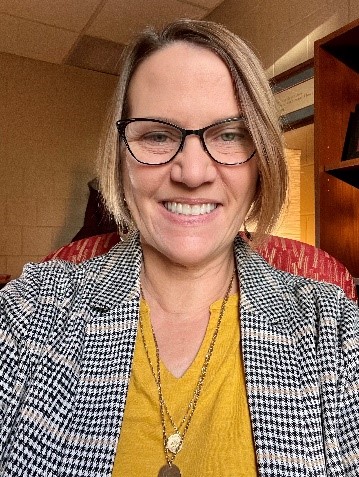 Why did University of Wisconsin – Whitewater pursue membership in the CREA project?
Why did University of Wisconsin – Whitewater pursue membership in the CREA project?
Increasing the diversity in our educator workforce is a high priority for our state and our institution. By many measures Wisconsin is failing when it comes to equity in our schools and in our educator workforce. As the EPP that prepares the most first-time licensed teachers in the state, we are interested in any initiative that advances the cause. In addition, in an effort to lessen the number of barriers for prospective teachers, our state changed rule, providing EPP with flexibility regarding what measures we use for admission. In our state, students can meet requirements with GPA OR test scores. Our state is continuing to address removal of barriers by recently changing rule again to allow for alternate measures to GPA for licensure (which, in turn, will allow greater flexibility with admission requirements). I believe our inclusion in the project is a means of sharing these avenues with states still requiring standardized test performance as the primary admission pathway.
08 Nov2021
By CSUDH

This article originally appeared on the California State University, Dominguez Hills news site and is reprinted with permission.
Snap Inc., developer of Snapchat, announced a $5 million gift to California State University, Dominguez Hills (CSUDH) for the creation and endowment of a new institute focused on addressing equity gaps in computing education. The gift comprises the largest single donation ever given to the CSUDH campus.
25 Oct2021
By Shea Kerkhoff, Shannon Tanghe and Tara Mathien
Our world is changing rapidly as cultures, ideas, conflicts, and viruses transcend borders. The global pandemic COVID-19 highlighted the multitude of ways the world is interconnected socially, technologically, environmentally, economically, and politically. Local-level responses alone have not been enough to mitigate the virus. The World Health Organization and United Nations have called for global coordination, information sharing, and most importantly, global solidarity to solve the crisis. As such, COVID-19 also illustrates the importance of globally competent teaching to build global solidarity, combat xenophobia, understand global systems, cut through misinformation, learn from other countries, and respond with empathy. Globally competent teaching prepares students to communicate and collaborate across borders in an effort to solve global challenges.
Figure 1. Created by authors in Piktochart.

25 Oct2021
By Stephen R. Levine
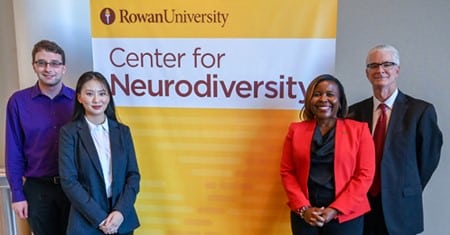
From left, Ben Wilner, Terry Nguyen, Monika Williams Shealey, and John Woodruff, director, Accessibility Services
This article originally appeared on the Rowan Today news website and is reprinted with permission.
On October 20, Rowan University announced an expansion of support and services, establishing a first in New Jersey Center for Neurodiversity on the Glassboro campus.
Rowan’s expansion of services for neurodiverse students stems directly from President Ali A. Houshmand’s commitment to access and inclusion throughout the University.
25 Oct2021
By Jane E. West and Kaitlyn Brennan
 This blog post is written by AACTE consultant Jane West and is intended to provide updated information. The views expressed in this post do not necessarily reflect the views of AACTE.
This blog post is written by AACTE consultant Jane West and is intended to provide updated information. The views expressed in this post do not necessarily reflect the views of AACTE.
As you will recall, in July the House Appropriations Committee approved the FY 2022 Labor, Health and Human Services, Education, and Related Agencies appropriations bill . The bill included historic increases for education from the FY 2021 level—a 41% increase for the Department of Education, which would bring the Department’s total budget to $102.8 billion. This week, a bit unexpectedly, Senate Appropriations Committee Chair Patrick Leahy (D-VT) released drafts of the nine remaining fiscal year (FY) 2022 Senate appropriations bills, including the Labor-HHS-Education bill. This is an unusual move, as we usually don’t see bills until they have gone through the Subcommittee markup. These drafts have not been approved by either Subcommittees or the full committee. Rather, they are intended to be a marker to keep the process rolling.
22 Oct2021
By Jane Fusco
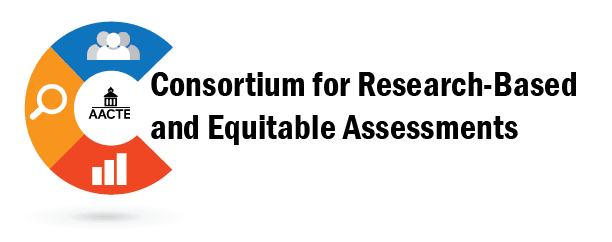
The University of Rhode Island’s Alan Shawn Feinstein College of Education and Professional Studies will represent the state as a lead institution in the American Association of Colleges for Teacher Education’s Consortium for Research-Based and Equitable Assessments, an initiative funded by the Bill and Melinda Gates Foundation that engages 14 states in a study of state-level tests and qualifying scores for entry into educator preparation programs.
URI will collaborate with the Rhode Island Department of Education, Rhode Island College, Central Falls School District, and Pawtucket School Department to examine state data and practices, as well as engage in quarterly convenings to inform guidelines and recommendations for setting qualifying cores for educator preparation program entry and exit.
 Since the historic SCOTUS ruling in 1982, Board of Education, Island Trees Union Free School District v. Pico, which ruled that school boards cannot remove books because they disagree with them, describing libraries as spaces of “voluntary inquiry,” book bans and challenges have continued. The education field is based upon the values of intellectual freedom that were upheld by this and other Supreme Court decisions; however, the executive director of the American Library Association’s Office for Intellectual Freedom recently stated in an interview, “We’re seeing an unprecedented volume of challenges.” While there is a formal “challenge” process for censoring information in libraries and curriculum, the enormous increase in political pressure has prompted some school districts to abandon their policies and begin pulling the books without undergoing this review process. As a result of not abiding by this process, which is legally reserved for challenging content that is “obscene,” books that overwhelmingly depict LGBTQ+ and BIPOC stories are removed from shelves, having been deemed “obscene” by local opinion.
Since the historic SCOTUS ruling in 1982, Board of Education, Island Trees Union Free School District v. Pico, which ruled that school boards cannot remove books because they disagree with them, describing libraries as spaces of “voluntary inquiry,” book bans and challenges have continued. The education field is based upon the values of intellectual freedom that were upheld by this and other Supreme Court decisions; however, the executive director of the American Library Association’s Office for Intellectual Freedom recently stated in an interview, “We’re seeing an unprecedented volume of challenges.” While there is a formal “challenge” process for censoring information in libraries and curriculum, the enormous increase in political pressure has prompted some school districts to abandon their policies and begin pulling the books without undergoing this review process. As a result of not abiding by this process, which is legally reserved for challenging content that is “obscene,” books that overwhelmingly depict LGBTQ+ and BIPOC stories are removed from shelves, having been deemed “obscene” by local opinion. 






 The current and historical public-school workforce in the United States remains predominantly white, middle class, and female; however, these demographics have never accurately represented all students in American classroom settings, which continue to grow in diversity. Classrooms are a place where the presence of biases, stereotype threats, and need for more inclusive environments resulting from differences between the demographics and lived experiences of the teaching workforce and students exist. While AACTE and other education stakeholders are taking up efforts to diversify the field, it is essential to improve the ability of our current educator workforce. In the United States, our classrooms have never been more diverse with students from multiple cultures, socio-economic levels, and disabilities. Thus, the essential question remains: How can we best prepare teachers to support all students in our classroom settings?
The current and historical public-school workforce in the United States remains predominantly white, middle class, and female; however, these demographics have never accurately represented all students in American classroom settings, which continue to grow in diversity. Classrooms are a place where the presence of biases, stereotype threats, and need for more inclusive environments resulting from differences between the demographics and lived experiences of the teaching workforce and students exist. While AACTE and other education stakeholders are taking up efforts to diversify the field, it is essential to improve the ability of our current educator workforce. In the United States, our classrooms have never been more diverse with students from multiple cultures, socio-economic levels, and disabilities. Thus, the essential question remains: How can we best prepare teachers to support all students in our classroom settings?

 The demographics of our nation’s PK-12 student body are changing. In fact, a
The demographics of our nation’s PK-12 student body are changing. In fact, a 
 Why did Lindenwood University pursue membership in the CREA project?
Why did Lindenwood University pursue membership in the CREA project?  This blog post is written by AACTE consultant Jane West and is intended to provide updated information. The views expressed in this post do not necessarily reflect the views of AACTE.
This blog post is written by AACTE consultant Jane West and is intended to provide updated information. The views expressed in this post do not necessarily reflect the views of AACTE.  This article originally appeared on
This article originally appeared on  Why did University of Wisconsin – Whitewater pursue membership in the CREA project?
Why did University of Wisconsin – Whitewater pursue membership in the CREA project? 


 This blog post is written by AACTE consultant Jane West and is intended to provide updated information. The views expressed in this post do not necessarily reflect the views of AACTE.
This blog post is written by AACTE consultant Jane West and is intended to provide updated information. The views expressed in this post do not necessarily reflect the views of AACTE. 